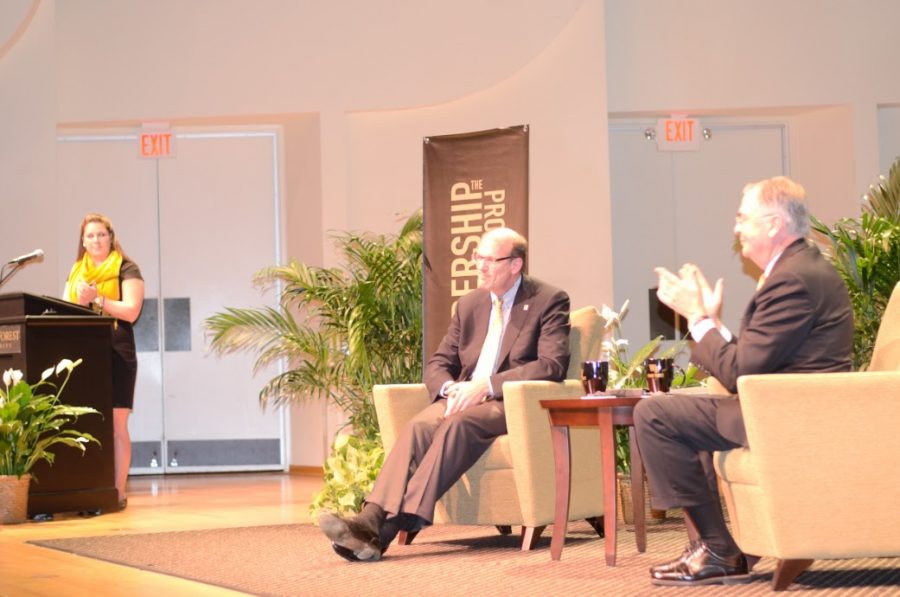Use your best gifts and skills to add value to the world: a tall order that’s easier said than done, but nonetheless was discussed by an extraordinary leader on October 20.
“To me it is so personal that all of us have to decide, ‘What are the short list of principles that I’m going to orient my life around, and that those are going to be unwavering,’” said Jonathan Reckford, CEO of Habitat for Humanity.
A conversation between President Nathan Hatch and Reckford took place on Monday evening in Brendle Recital Hall as part of The Leadership Project.
The Leadership Project’s mission is to invite leaders to Wake Forest to share personal principles, triumphs and challenges in order to consider humanity, values, skills and learn how to challenge them in a meaningful way.
Reckford’s extensive résumé, including a range of accomplishments from coaching the Korean rowing team for the 1988 Olympics to holding an executive position at Goldman Sachs have led to a life of experience with business and devotion to serving others.
Reckford explained to students that finding a job that you enjoy and that you are good at is ideal but not likely to be your first job. Reckford explained that every job has stuff you love to do and stuff you do not like to do; you just have to find a more favorable balance eventually.
“It actually doesn’t matter what you do in your twenties,” Reckford said. “The key is to view your whole next years after college as continuing your education.”
When asked by Hatch who inspired him most, Reckford responded, “the women in my life.”
Reckford’s mother was an advocate for civil rights, and his grandmother, Millicent Fenwick, was a fashion editor and a member of the U.S. House of Representatives. His grandmother always asked him: “What are you going to do in life to be useful?”
When asked if it was always his intent to work in both the profit and nonprofit sectors, Reckford replied, “absolutely not.”
Reckford explained how sometimes it takes a clear understanding of an injustice in the world in order to become motivated to do something to truly make a difference.
A moment of “holy discontent” he experienced in rural India prompted Reckford to leave the private sector and start working with a non-profit.
Katherine Kenyon, president of the Wake Forest Habitat for Humanity chapter, explained how Reckford’s background is applicable to Wake students.
“He has that pro-humanitate background that fits so well for Wake Forest,” Kenyon said.
“I’m very encouraged by the young people I meet, I think this generation is more idealistic and more connected than any other generation,” said Reckford.










